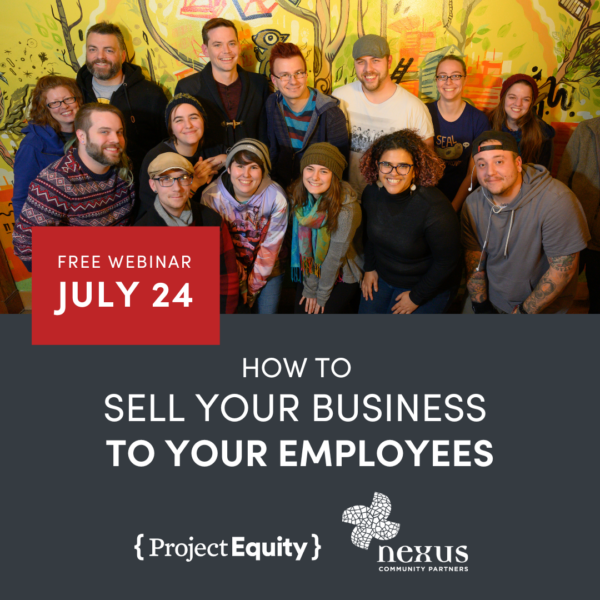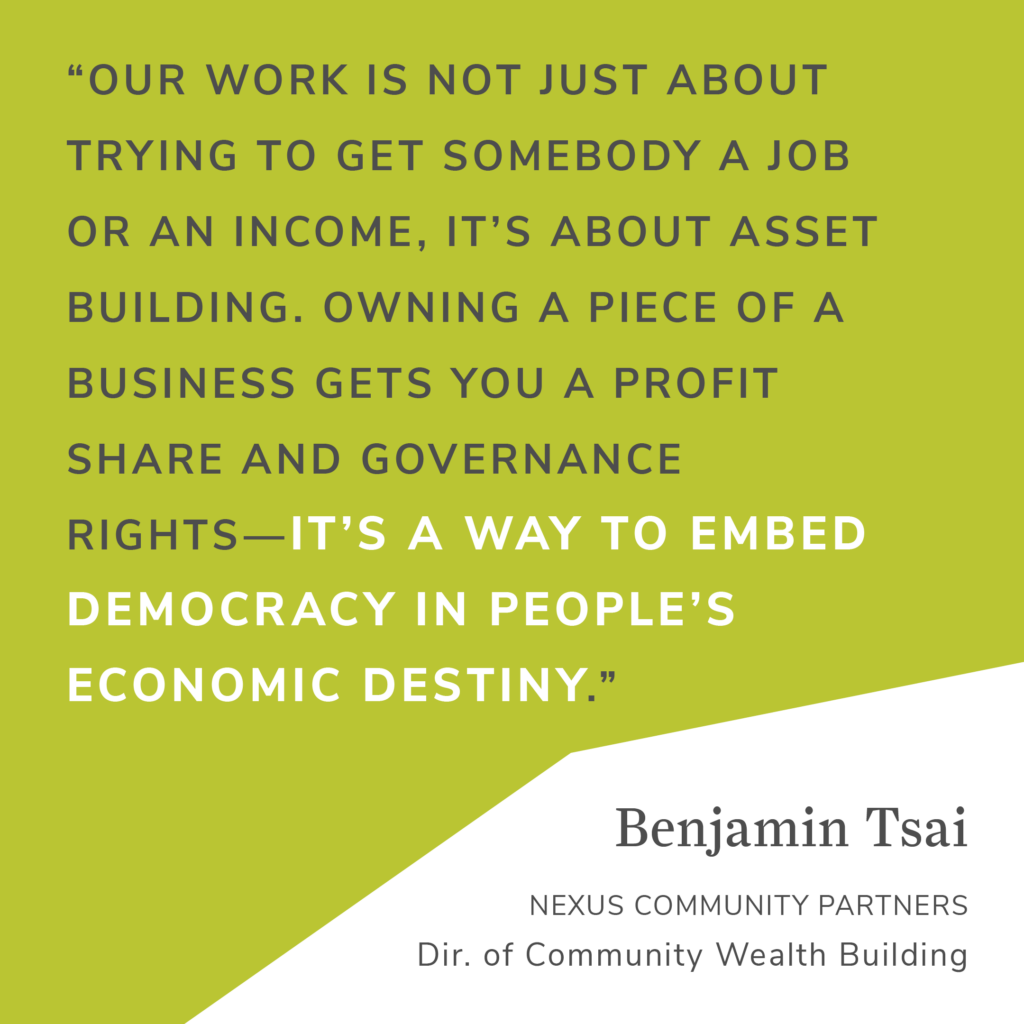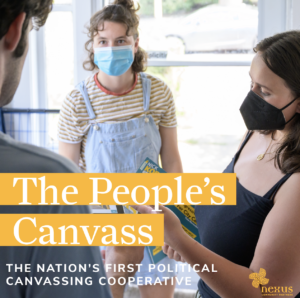Nexus Community Partners’ Shared Ownership Center will administer $2.5 million in funding to grow cooperative ownership in Saint Paul
FOR IMMEDIATE RELEASE
March 15, 2024
SAINT PAUL, MN—Today, Mayor Melvin Carter announced that the Shared Ownership Center at Nexus Community Partners will administer the LOCAL Fund, in partnership with the City of Saint Paul Office of Financial Empowerment.
“Helping frontline workers buy the business and facilitating group ownership of real estate is exactly the kind of practical, everyday improvement to our residents’ lives that our work from City Hall must aspire to achieve,” said Mayor Carter. “I am thrilled to have Nexus as a partner to facilitate these programs.”
Comprised of two programs – Worker Ownership and Community Ownership – the LOCAL Fund will leverage $2.5 million dedicated to supporting worker cooperatives and real estate investment cooperatives.
“The Shared Ownership Center at Nexus brings expertise in cooperative development with a long history of building community-led coalitions that center equity,” said Ikram Koliso, Interim Director of the Saint Paul Office of Financial Empowerment. “Nexus brings the right combination of technical skills, administrative capacity, and equity-centered leadership for the LOCAL Fund.”
The LOCAL Fund will build community wealth, anchor jobs locally, grow the local economy and tax base, and center an ownership culture that uplifts residents of Saint Paul now and for generations to come.
According to a 2018 study from National Center for Employee Ownership, employee-owned businesses, such as co-ops, have been shown to create a 92% increase in household net worth, a 33% higher hourly wage, and 53% longer job tenure. Real estate co-ops have been shown to revitalize commercial corridors by offering stable and affordable properties to businesses, while giving community members a voice in development decisions and a share of the profits.
The LOCAL Fund: Worker Ownership offers grants and technical assistance for worker co-op startups, conversions of existing businesses, and existing co-ops. The LOCAL Fund: Community Ownership supports shared-ownership entities with grants and technical assistance for predevelopment, acquisition, demolition, and rehabilitation of commercial properties.
Patty Viafara, Direcotr of the Worker Ownership Inititiave at Nexus said, “The Shared Ownership Center at Nexus is excited to build on our seven-plus years of supporting cooperative development with Black, Indigenous, and people of color at the forefront.”
Both the Worker Ownership and Community Ownership programs are open today! Fill out this inquiry form to learn how you can apply or visit www.nexuscp.org/shared-ownership-center.
This project is being supported, in whole or in part, by federal award number SLFRP1612 awarded to Nexus Community Partners by the U.S. Department of the Treasury.
ABOUT NEXUS COMMUNITY PARTNERS
Nexus Community Partners (Nexus) is a nonprofit organization based in Saint Paul, MN, with a 20-year history of building more engaged and powerful communities of color through innovative initiatives and community-centered programming. For more information, visit www.nexuscp.org.
Since 2019, the Shared Ownership Center at Nexus, formerly called the Worker Ownership Initiative, has worked with 50-plus companies to explore models of shared ownership and supported the development of eight cooperatives across the Twin Cities. From assessing fit and feasibility to becoming cooperatively-owned and operated, SOC@N brings expertise and an equity lens in all steps of cooperative development.
###
Contact:
Kamal Baker
kamal.baker@ci.stpaul.mn.us
763-381-1335



 Did you hear that the People’s Canvass (formerly Knock Knock LLC) has become a worker-owned cooperative?
Did you hear that the People’s Canvass (formerly Knock Knock LLC) has become a worker-owned cooperative?